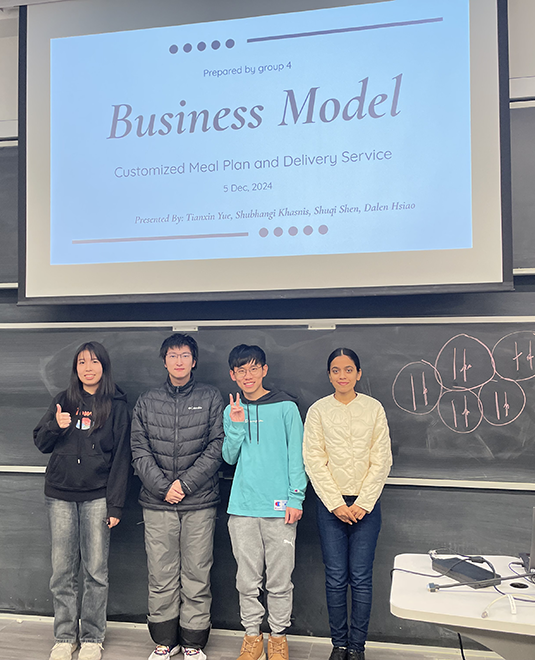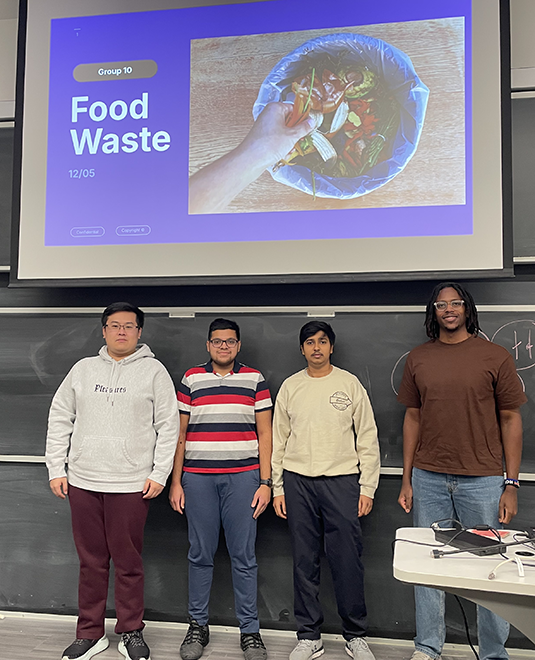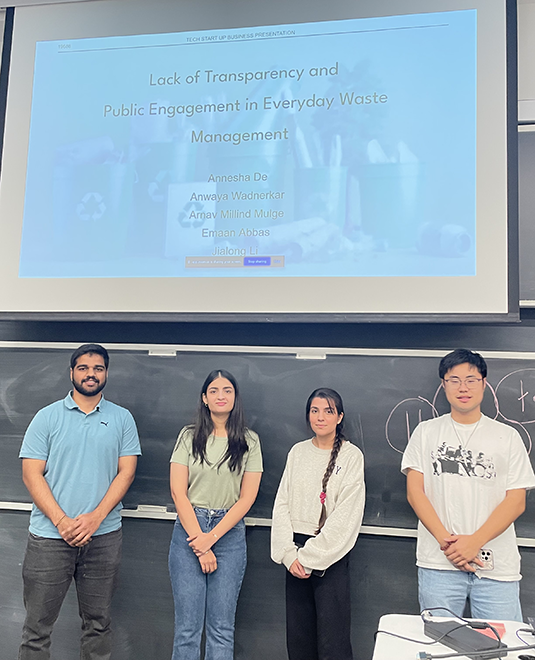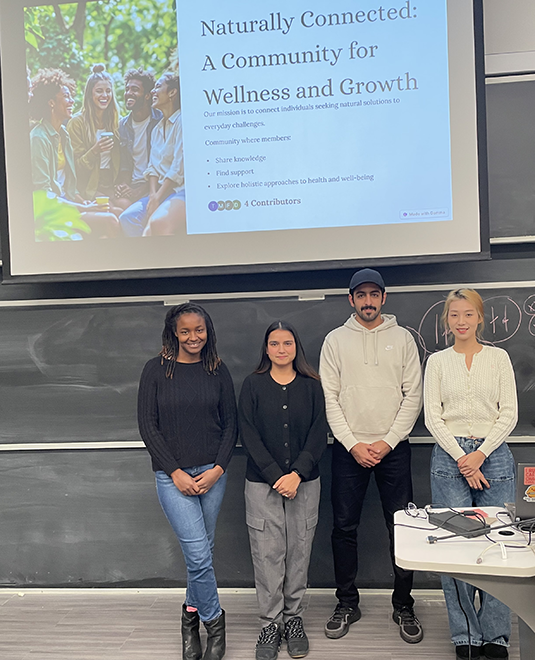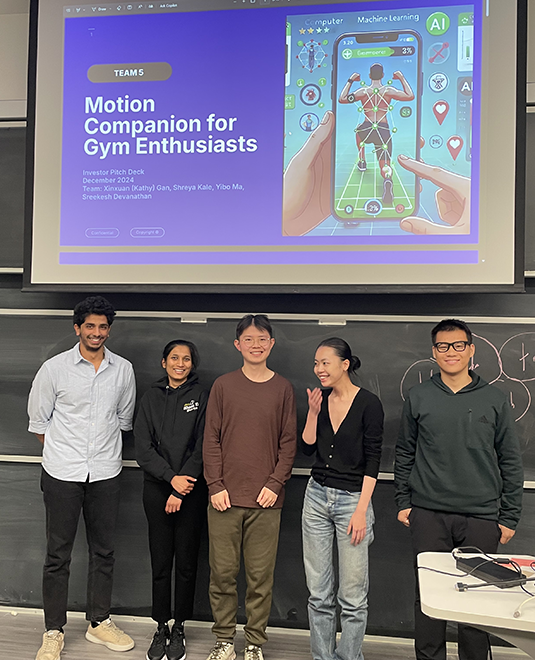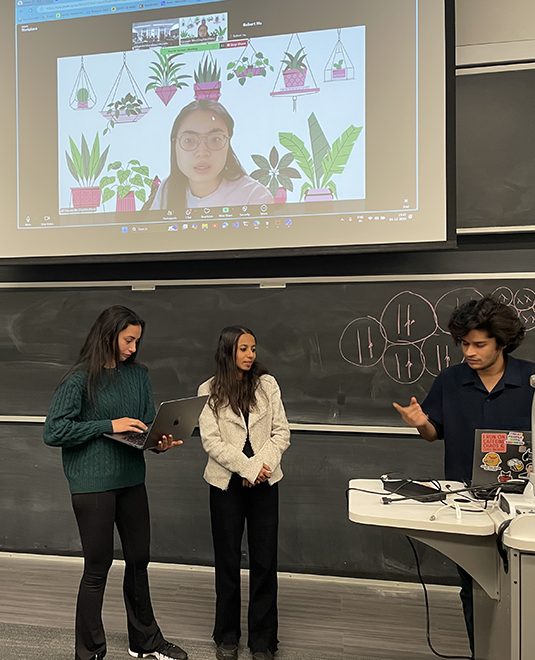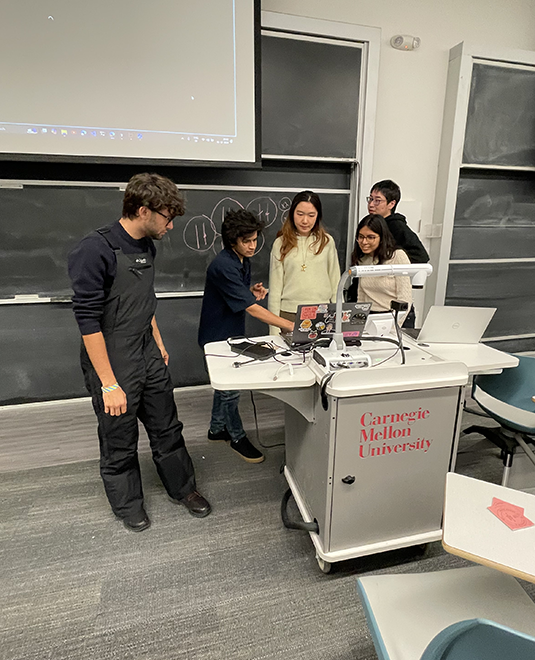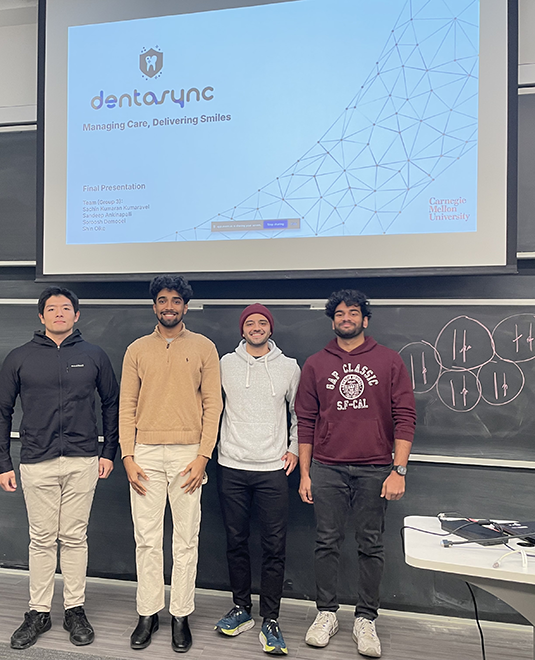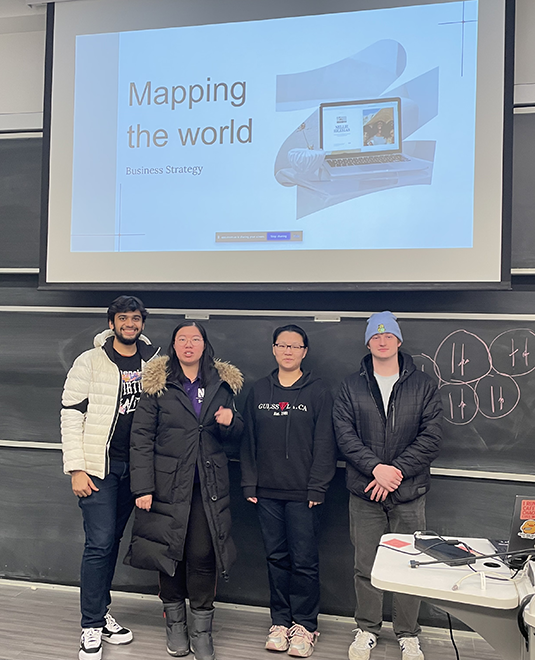Foosball and Ferraris forever
Students in Tech Start-Up class learn how to develop viable businesses from experienced entrepreneurs.
Do you want to be an entrepreneur?
That’s the question that Mark DeSantis asks students in the beginning of the Tech Start-Up: Market Discovery & Building Your Own Company class that he has been teaching in the College of Engineering for more than 10 years.
When he poses the same question at the end of the semester, a few students’ answers change from yes to no. Despite the promise of what DeSantis jokingly calls “foosball and Ferraris forever,” some students discover that the demands of entrepreneurial success are more than they anticipated.
But that’s the point of the class—to expose students to what the process of starting a successful tech company really involves. And although a few may turn away, many move ahead—more than one in four go on to start their own company or work for a start-up according to DeSantis, who says the class is designed to prepare students for the specific demands of tech entrepreneurship.
The class reinforced certain things, but there were also many insightful ideas that were new to us.
Akpene Diata Hoggar, Information Technology graduate, CMU-Africa
Akpene Diata Hoggar earned her master’s degree in information technology in 2024 from Carnegie Mellon University Africa, where DeSantis teaches the class remotely during the spring semester. She was excited about the course because she had already started other businesses.
“The class reinforced certain things, but there were also many insightful ideas that were new to us,” she said.
In particular, she came to appreciate one of the core concepts of the class: inviting potential customers to influence the development of the enterprise. The students, who work in small groups to come up with a business creation idea, are required to conduct 50 in-person customer discovery interviews to help them identify the problems their product or service should solve.
Hoggar said the class helped her and her classmates shape their approach to developing their company, Remotide, a platform dedicated to connecting African professionals with permanent remote international job opportunities.
DeSantis calls upon his own experience as an entrepreneur to guide the students throughout the semester-long process of fine-tuning their business idea. In addition to having worked in both industry and government, he has founded multiple businesses, several of which have been acquired by larger companies. Most recently, his start-up Bloomfield, a venture-backed ag-tech company that helps specialty growers in the U.S., Europe, and South America, was acquired by Kubota Tractor company.
When one of the groups in last fall’s class, held in Pittsburgh, introduced their idea for a wayfinding app that would help people navigate the interiors of large campus buildings, DeSantis pushed the group to think about who else has the problem of finding their way through large facilities.
Mobile robots was one answer he was looking for. He said their application also had the potential to help the growing number of mobile robots find their way in complex environments.
DeSantis agreed that developing such an app would be a hard problem, but he also said, “When a problem seems too hard and you can’t even imagine a solution, that means it’s an even better opportunity!”
At the end of the semester, the team had developed Mapping the World. Feedback from customer interviews helped them to expand the potential use cases to include visitors in hospitals, shopping malls, and resorts, as well as first responders who needed to find their way to the point of need. The students were also able to differentiate their product from similar applications by incorporating features such as path sharing, real-time updates on human traffic conditions, and geo-targeted ads and promotions.
“This is a viable tech play with a real tech solution,” DeSantis told the group, adding that Carnegie Mellon was the ideal place to find the people who could develop it.
Many such words of encouragement often come with an equal dose of reality from DeSantis. He told the students that innovation is jarring and disorienting to many. He warned them that the status quo will fight them, few will embrace their ideas, and many will reject their proposals.
But he doesn’t expect the students to rely on only his point of view or experiences. He invites venture capitalists and successful entrepreneurs into the class.
Dawn Myers, who is a guest lecturer in fundraising and entrepreneurship at Carnegie Mellon talked to the students about her entrepreneurial challenges founding her company, Richualist, which sells The Mint, a thermal hair infuser that distributes heated gels and conditioners in coffee pod-like cartridges to detangle curly hair.
If you succeed, woo wee, the world calls you a genius. But you do it because nothing is more satisfying than realizing that your idea worked, and the long, impossible journey was worth it.
Mark DeSantis, Adjunct Instructor, College of Engineering
During the seven years it took to get the product to market, Myers found that many would-be funders and company executives didn’t know how much time black women had to spend on their hair, which meant they couldn’t see the potential that her product had to help them style their natural curls.
Myers persevered through rejection, setbacks, and a bout of cancer before finally bringing her product to market. Earlier this year she received funding from Shark Tank investors Mark Cuban and Emma Grede. The pair offered her $150,000 in exchange for 15% equity in her company.
DeSantis tells the class, “If you succeed, woo wee, the world calls you a genius. But you do it because nothing is more satisfying than realizing that your idea worked and the long, impossible journey was worth it.”
His enthusiasm makes it easy for the students to believe they can do it. More importantly, the lessons give them a set of skills succeed.

